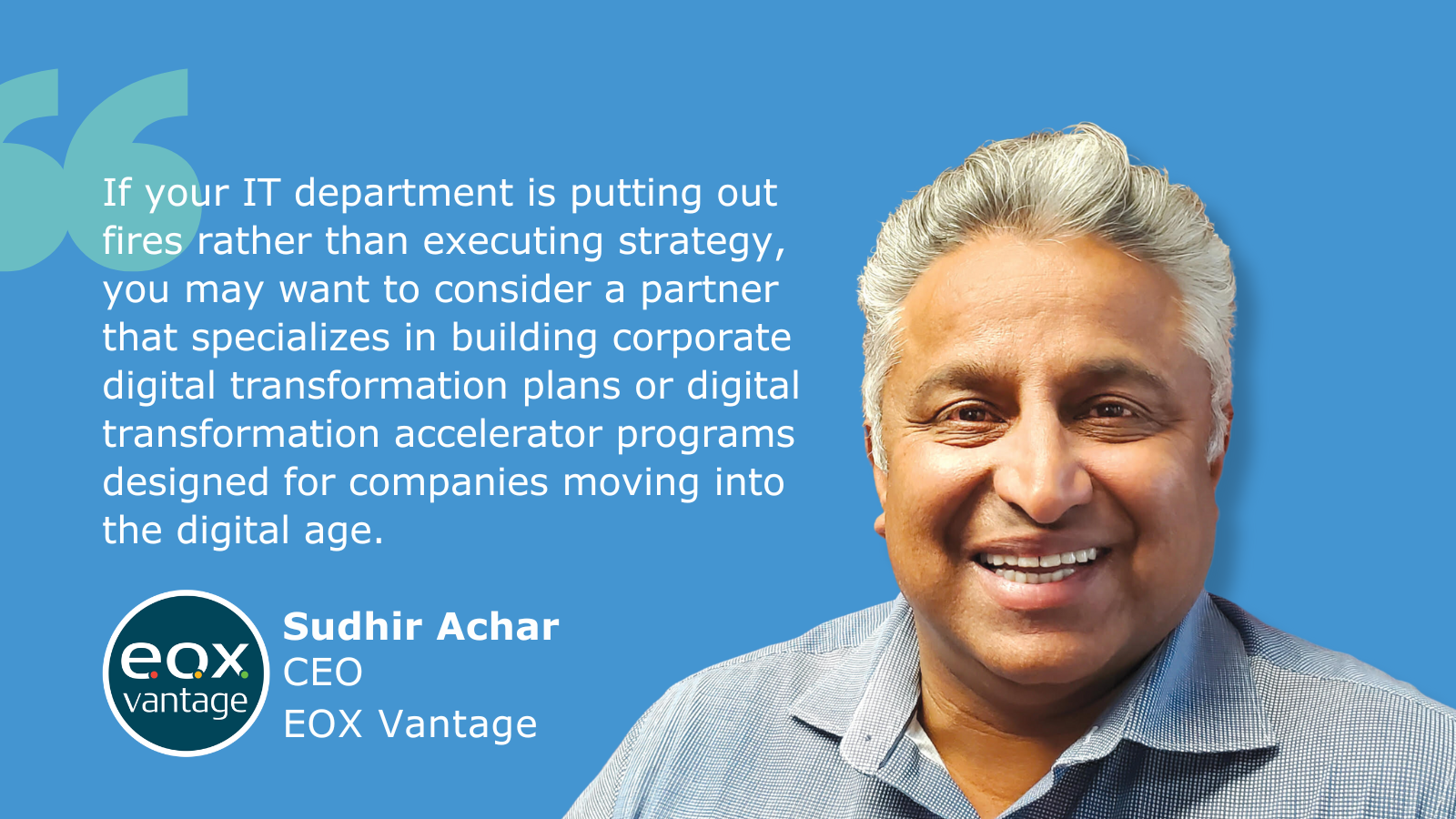Interviewed by Jayne Gest
When you ask someone, "What is digital transformation?" you'll get different answers. For C-suite executives, it's about understanding and knowing where the important data is, and using that information to impact business in a positive way.
This is critical because data is the future. Organizations must get a handle on their data, not only to understand their business better, but also to act on the information in a timely manner. Only then will executives and managers be able to analyze processes and workflows to allocate the right resources, pass insights on to executors and mitigate business risks.
Smart Business spoke with Sudhir Achar, CEO of EOX Vantage, about the digitization of business processes and how to ensure this transformation provides results.
What does it mean to digitize something? What are some examples?
When you digitize a process, you use technology to follow that process from cradle to grave, capturing data inputs along the way. This enables you to track how long something takes, what's creating a backlog and where information is missing. Then with automation, alerts can be sent to the appropriate people at the right time.
Take, for example, an e-commerce company using independent contractors to deliver goods to its customers. The e-commerce company required independent contractors to have a clean driving record and the appropriate insurance coverage, but the company did not have a system to track compliance. So when drivers with expired insurance or expired licenses got into accidents, it put risk back on the e-commerce business.
By digitizing what was a paper-driven process with a digital application and automated workflows, the experience for the independent contractor was improved and the company turned the paper process and its unstructured data into a digital process with structured data that provided real operational intelligence. Compliance was automated; drivers are notified 90, 60, 30 and seven days out from the expiration of their insurance. If a driver becomes noncompliant, an automated message helps ensure that driver isn't scheduled.
In another instance, when customers brought their vehicles in to be serviced at a car dealer, they received a loaner car for a day or two. The car needed to go onto an insurance policy but the complicated process included a lot of emails and faxes, and was different at each dealership. Cars went out without coverage. People got into accidents and the manufacturer, who owned the car, was responsible.
With a uniformed digitalized process deployed across hundreds of dealerships, the manufacturer was able to verify that each loaner car is insured, reduce its risk and gain valuable insights into the operations of dealerships across the country. At the dealerships, the process was simplified. Employees click a button to put a car on their insurance. They print off an insurance card and hand it to the customer. When the car comes back, employees hit a button to end the policy, and the system generates a bill. After a month and a half, 90 percent of dealerships were using the new system.
Why do digital transformation efforts fail?
The implementation process has two pieces - technology and people. Both sides of the equation need to be managed for a better chance of success. The human element also needs to include buy-in from the C-suite.
In addition, rolling out massive and encompassing changes across an entire enterprise is risky. You may get pushback. That's why it's better to focus on little wins to help build the case. Processes that are harder to implement than you initially thought, or ones that don't have the expected business impact, will also stall digital transformation efforts.
How should companies get started with a document digitization strategy and digital transformation?
Start by looking at your current resources and capabilities in order to determine what needs to be added. If your IT department is putting out fires rather than executing strategy, you may want to consider a partner that specializes in building corporate digital transformation plans or digital transformation accelerator programs designed for companies moving into the digital age.





